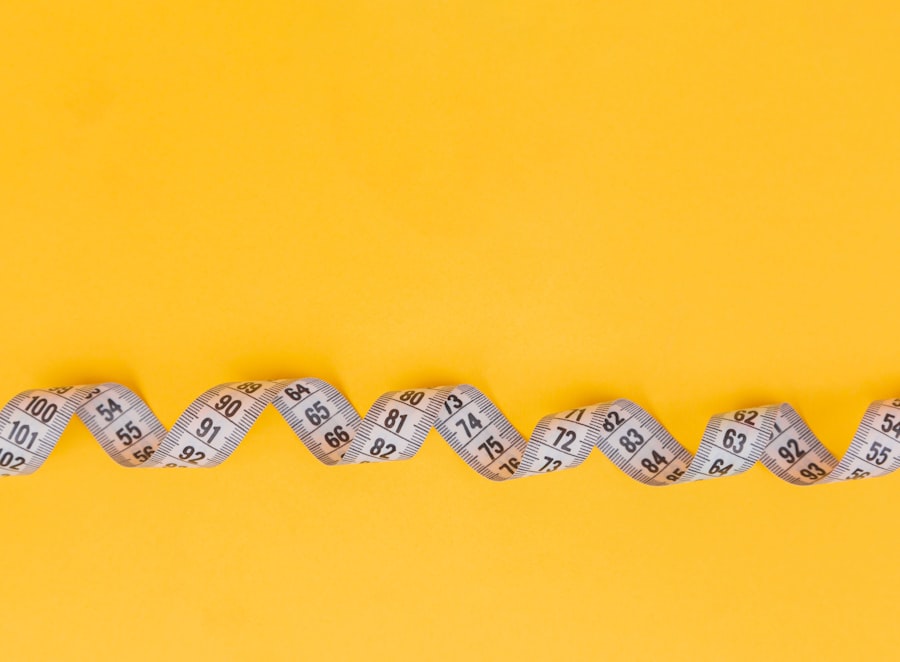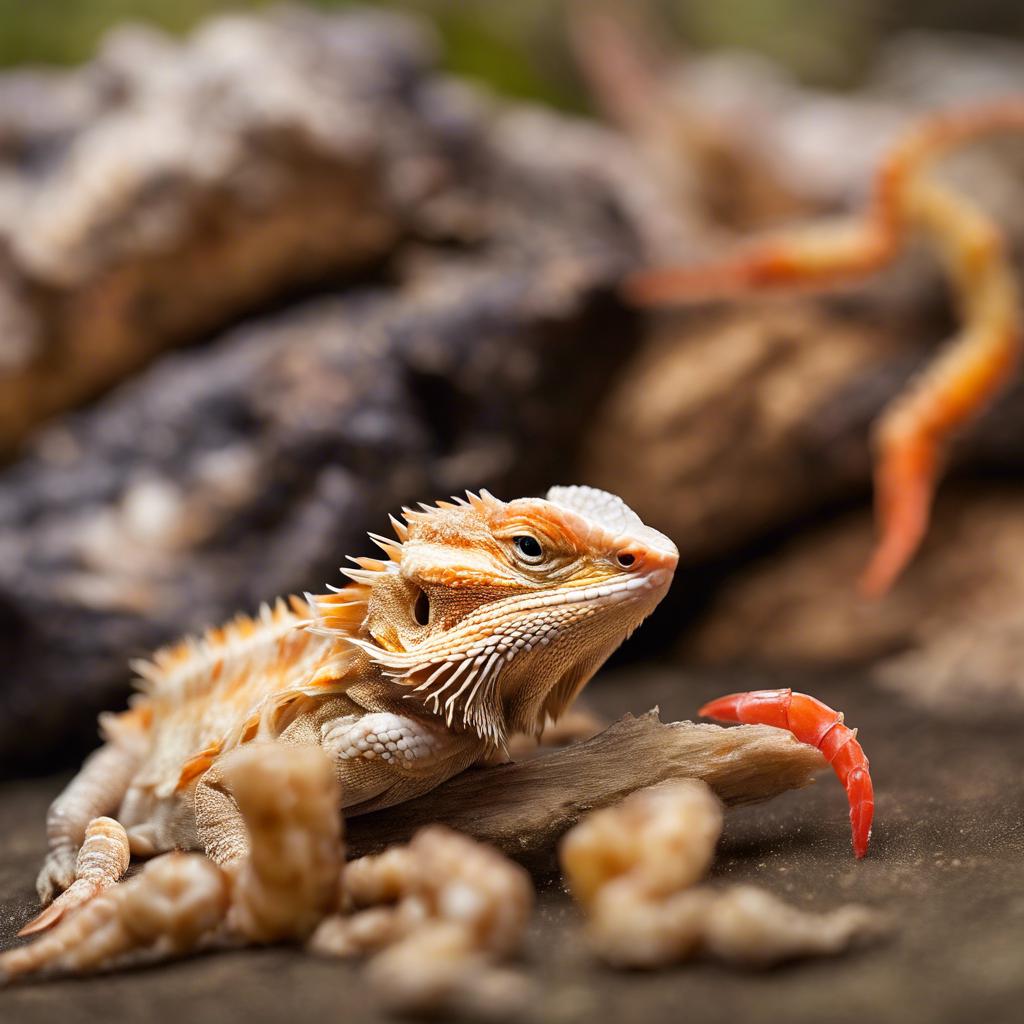Bearded dragons are popular reptile pets known for their unique appearance and docile nature. These reptiles are native to Australia and are commonly found in the arid regions of the country. As omnivores, bearded dragons have a diverse diet that consists of both plant matter and animal protein. Providing a balanced and nutritious diet is essential for the overall health and well-being of these fascinating creatures.
Key Takeaways
- Shrimp can be a nutritious addition to a bearded dragon's diet.
- Shrimp are high in protein and contain important vitamins and minerals.
- Feeding shrimp to bearded dragons can improve their immune system and promote healthy growth.
- However, too much shrimp can lead to health problems such as obesity and digestive issues.
- Shrimp should be prepared properly and fed in moderation as a treat, alongside a balanced diet of vegetables and insects.
Nutritional Value of Shrimp for Bearded Dragons
Shrimp is a type of seafood that is rich in nutrients and can be a beneficial addition to a bearded dragon's diet. Shrimp is an excellent source of protein, which is essential for muscle growth and repair. It also contains essential amino acids that cannot be produced by the body and must be obtained through diet. In addition to protein, shrimp is also a good source of vitamins and minerals such as vitamin B12, selenium, and iodine.
When comparing shrimp to other common foods in a bearded dragon's diet, it is important to consider the nutritional content. While vegetables and fruits are important for providing vitamins and fiber, they may not provide sufficient protein for the reptile's needs. Insects such as crickets and mealworms are commonly fed to bearded dragons as a source of protein, but shrimp can offer a different variety of nutrients that may be beneficial for their overall health.
Benefits of Feeding Shrimp to Bearded Dragons
Including shrimp in a bearded dragon's diet can have several positive effects on their health. The high protein content in shrimp can help support muscle development and growth, especially in young dragons. The amino acids found in shrimp are also important for maintaining healthy skin, scales, and claws.
Shrimp is also a good source of omega-3 fatty acids, which are essential for brain development and function. These fatty acids can help improve cognitive function and promote overall brain health in bearded dragons. Additionally, the vitamins and minerals found in shrimp can contribute to a strong immune system and help prevent diseases and infections.
Risks of Feeding Shrimp to Bearded Dragons
While shrimp can provide several nutritional benefits, there are also potential risks associated with feeding it to bearded dragons. One of the main concerns is the high cholesterol content in shrimp. Bearded dragons are prone to developing fatty liver disease, and a diet high in cholesterol can exacerbate this condition. It is important to feed shrimp in moderation and ensure that it is not the sole source of protein in their diet.
Another risk is the potential for bacterial contamination in raw or improperly prepared shrimp. Shrimp can harbor harmful bacteria such as Salmonella, which can cause digestive issues and other health problems in bearded dragons. To minimize this risk, it is crucial to properly clean and cook the shrimp before feeding it to your pet.
How to Prepare Shrimp for Bearded Dragons
To prepare shrimp for a bearded dragon's meal, it is important to follow a few steps to ensure its safety and nutritional value. First, choose fresh or frozen raw shrimp that has been deveined and deshelled. Avoid using pre-cooked or seasoned shrimp, as they may contain additives that are not suitable for reptiles.
Next, thoroughly rinse the shrimp under cold water to remove any dirt or debris. It is also recommended to soak the shrimp in a solution of water and reptile-safe disinfectant for a few minutes to further reduce the risk of bacterial contamination.
After rinsing and soaking, cook the shrimp by boiling it in water for about 3-5 minutes or until it turns pink and opaque. This will help kill any potential bacteria and make the shrimp safe for consumption. Once cooked, allow the shrimp to cool before serving it to your bearded dragon.
How Often Should You Feed Shrimp to Your Bearded Dragon?

The frequency of shrimp feedings for bearded dragons depends on several factors, including their age, size, and overall health. Shrimp should be considered as a treat or occasional addition to their diet rather than a staple food. It is recommended to feed shrimp to adult bearded dragons no more than once or twice a week, while younger dragons may benefit from more frequent feedings.
It is important to remember that a balanced diet is key for the health of your bearded dragon. Shrimp should be supplemented with other protein sources such as insects and plant matter such as leafy greens and vegetables. Variety is crucial to ensure that your pet receives all the necessary nutrients for optimal health.
Other Foods to Include in Your Bearded Dragon's Diet
In addition to shrimp, there are several other foods that are beneficial for bearded dragons. Insects such as crickets, mealworms, and dubia roaches are excellent sources of protein and can be fed regularly. Leafy greens such as kale, collard greens, and dandelion greens are rich in vitamins and minerals and should make up a significant portion of their diet.
Vegetables such as carrots, bell peppers, and squash can also be included in their diet. Fruits should be fed sparingly due to their high sugar content. It is important to research the specific dietary needs of your bearded dragon and consult with a veterinarian to ensure they are receiving a balanced diet.
Tips for Feeding Your Bearded Dragon
When feeding your bearded dragon, it is important to provide a clean and safe environment. Use shallow dishes or bowls for feeding to prevent accidental ingestion of substrate or bedding. Remove any uneaten food after each feeding to prevent spoilage and bacterial growth.
It is also important to provide fresh water at all times. Bearded dragons may not drink water directly, but they will often soak in it to stay hydrated. Ensure that the water is clean and free of any contaminants.
Signs of Digestive Issues in Bearded Dragons
Bearded dragons are susceptible to digestive issues, and it is important to be aware of the signs and symptoms. Common digestive problems include constipation, diarrhea, and impaction. Signs of digestive issues may include loss of appetite, weight loss, lethargy, and abnormal bowel movements.
If you suspect that your bearded dragon is experiencing digestive problems, it is important to seek veterinary care immediately. A veterinarian will be able to diagnose and treat the issue accordingly.
Shrimp as a Treat for Your Bearded Dragon
In conclusion, shrimp can be a healthy and nutritious treat for your bearded dragon when fed in moderation. It is important to consider the nutritional value of shrimp and its potential risks when incorporating it into their diet. By following proper preparation and feeding guidelines, you can provide your pet with a varied and balanced diet that promotes their overall health and well-being. Remember to consult with a veterinarian for specific dietary recommendations for your bearded dragon.
If you're wondering whether bearded dragons can eat shrimp, you'll find all the answers in this informative article from Reptile Wizard. Discover the nutritional benefits and potential risks of feeding shrimp to your bearded dragon, as well as tips on how to prepare and serve it safely. To learn more, check out the article here.
FAQs
What is a bearded dragon?
A bearded dragon is a type of lizard that is native to Australia. They are popular pets due to their docile nature and unique appearance.
Can bearded dragons eat shrimp?
Yes, bearded dragons can eat shrimp. However, it should only be given as an occasional treat and not as a regular part of their diet.
What are the nutritional benefits of shrimp for bearded dragons?
Shrimp is a good source of protein for bearded dragons. It also contains vitamins and minerals such as calcium, phosphorus, and iodine.
Are there any risks associated with feeding shrimp to bearded dragons?
Yes, there are some risks associated with feeding shrimp to bearded dragons. Shrimp can be high in cholesterol and should not be given to bearded dragons with a history of high cholesterol or heart problems. Additionally, shrimp should be cooked and deveined before being fed to bearded dragons to avoid any potential bacterial infections.
What other foods should bearded dragons eat?
Bearded dragons should primarily eat a diet of insects such as crickets, mealworms, and dubia roaches. They should also be given a variety of vegetables such as kale, collard greens, and carrots. It is important to provide a balanced diet to ensure their health and well-being.

